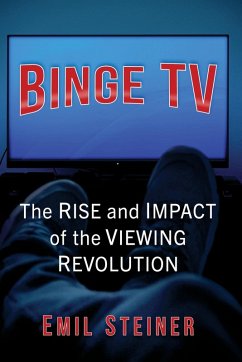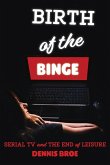For the first 70 years of television, broadcasters dictated the terms of the viewing experience, deciding not only when but how much of a program an audience could watch. Binge-watching destroyed that model by placing control of the experience in the hands of the viewer. In this book, media scholar Emil Steiner chronicles the technological and cultural struggle between broadcasters and viewers, which reached a climax in the early 2010s with the emergence of streaming video platforms. Through extensive interviews and archival research, this groundbreaking project traces the history of binge-watching from its idiot box roots to the new normal of Peak TV. Along the way, Steiner exposes the news campaigns waged by disruptive technology companies that exploited a long-simmering, revolutionary narrative of viewer empowerment to take over the broadcast industry. Binge-watching, an individual's act of gaining control and losing control through the remote control, exposed a debate that had been raging since the first TV set was turned on--one that asks, ""Who controls the story?""
Hinweis: Dieser Artikel kann nur an eine deutsche Lieferadresse ausgeliefert werden.
Hinweis: Dieser Artikel kann nur an eine deutsche Lieferadresse ausgeliefert werden.








